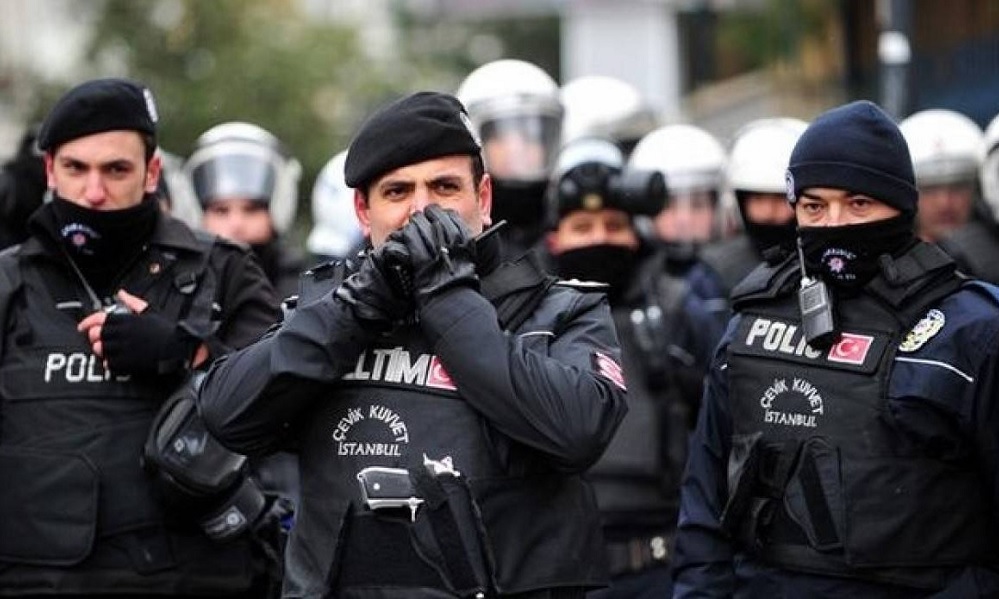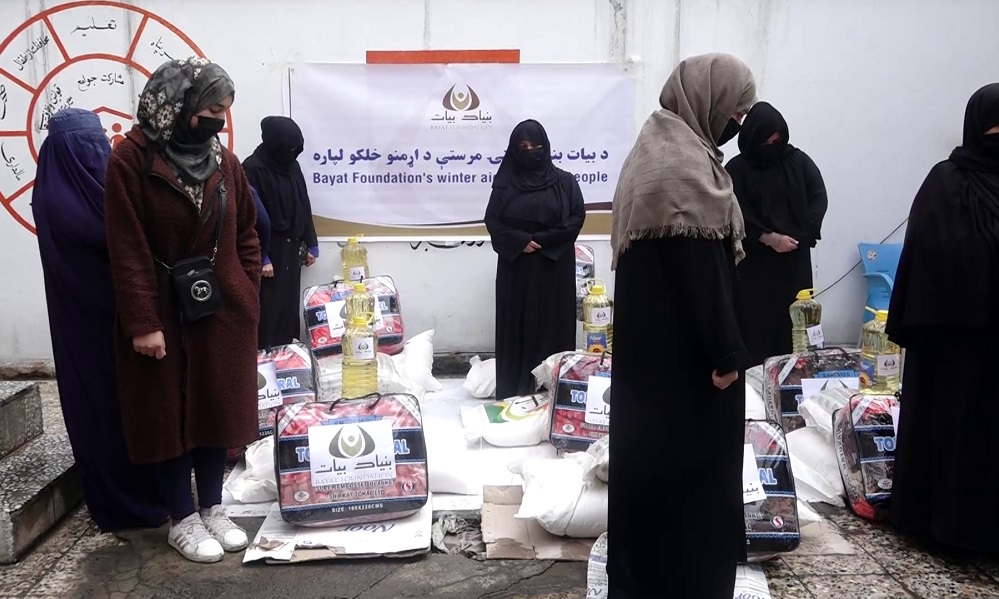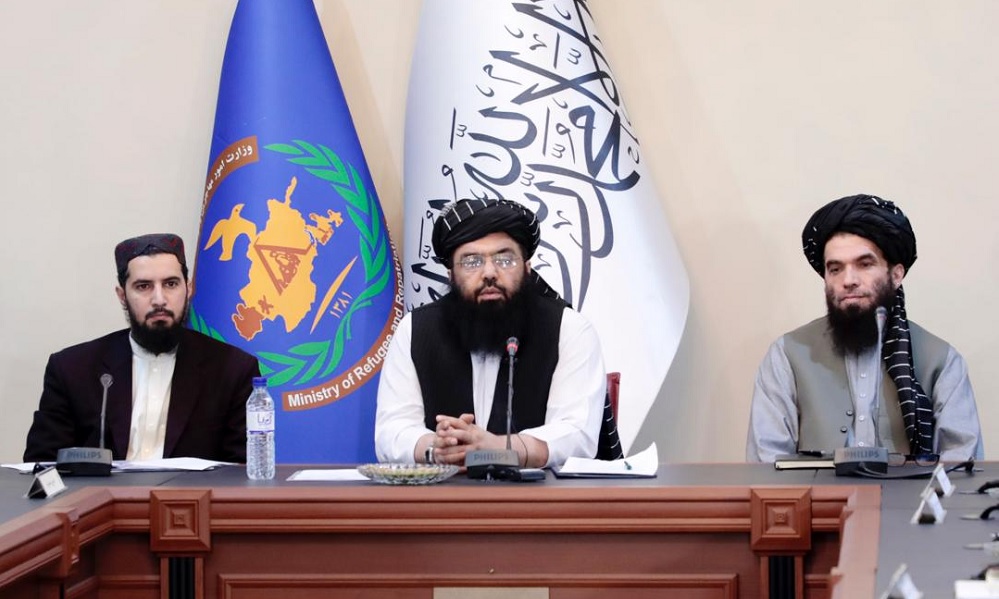Latest News
Biden says Afghanistan exit marks the end of U.S nation-building

Facing sharp criticism over the tumultuous U.S. withdrawal from Afghanistan, President Joe Biden said on Tuesday it was the best available option to end both the United States’ longest war and decades of fruitless efforts to remake other countries through military force, Reuters reported.
Biden portrayed the chaotic exit as a logistical success that would have been just as messy even if it had been launched weeks earlier, while staying in the country would have required committing more American troops.
“I was not going to extend this forever war,” he said in a speech from the White House.
Earlier in the day, the Taliban, which seized control of Afghanistan in a lightning advance this month, fired guns into the air and paraded coffins draped in U.S. and NATO flags as they celebrated their victory, Reuters reported.
In his first remarks since the final pullout of U.S. forces on Monday, Biden said 5,500 Americans had been evacuated and that the United States had leverage over the Taliban to ensure 100 to 200 others could also depart if they wanted to.
He said Washington would continue to target militants who posed a threat to the United States, but would no longer use its military to try to build democratic societies in places that had never had them.
“This decision about Afghanistan is not just about Afghanistan. It’s about ending an era of major military operations to remake other countries,” he said.
According to Reuters report the Taliban now control more territory than when they last ruled before being ousted in 2001 at the start of America’s longest war which took the lives of nearly 2,500 U.S. troops and an estimated 240,000 Afghans, and cost some $2 trillion.
More than 123,000 people were evacuated from Kabul in a massive but chaotic airlift by the United States and its allies over the past two weeks, but many of those who helped Western nations during the war were left behind.
Biden said the only other option would have been to step up the fight and continue a war that “should have ended long ago.” Starting the withdrawal in June or July, as some have suggested, would only have hastened the Taliban’s victory, he said.
But Biden’s decision was far from popular and he has faced criticism from Republicans and fellow Democrats, as well as from foreign allies.
U.S. Senate Republican leader Mitch McConnell said the departure had abandoned Americans behind enemy lines.
“We are less safe as a result of this self-inflicted wound,” he said in his home state of Kentucky.
The U.S. invasion in 2001, which followed the Sept. 11 attacks on New York and Washington, stopped Afghanistan from being used by al Qaeda as a base to attack the United States and ended a period of Taliban rule from 1996 in which women were oppressed and opponents crushed.
There was a mixture of triumph, elation and fear on the streets of Afghanistan as the Taliban celebrated their victory.
“We are proud of these moments, that we liberated our country from a great power,” Taliban spokesman Zabihullah Mujahid said.
While crowds lined the streets of the eastern city of Khost for a mock funeral with coffins draped with Western flags, long lines formed in Kabul outside banks closed since the fall of the capital, Reuters reported.
“I had to go to the bank with my mother but when I went, the Taliban (were) beating women with sticks,” said a 22-year-old woman who spoke on condition of anonymity because she feared for her safety.
“It’s the first time I’ve seen something like that and it really frightened me.”
The Taliban’s previous government brutally enforced a radical interpretation of Islamic law but Biden has said the world would hold them to their recent commitments to uphold human rights and allow safe passage for those wanting to leave Afghanistan.
The reports said that the Western donors have said future aid to the war and drought-ravaged country will be contingent on those promises being met.
European Union countries proposed to step up assistance to Afghanistan and its neighbours, amid fears that up to half a million Afghans could flee their homeland by the end of the year.
The United States last week issued a license authorizing it and its partners to continue to facilitate humanitarian aid in Afghanistan even though the Taliban is blacklisted by Washington, a Treasury Department official told Reuters.
The license authorizes the U.S. government and its contractors to support humanitarian assistance to people in Afghanistan, including the delivery of food and medicine, despite U.S. sanctions on the Taliban, Reuters reported.
Pentagon spokesman John Kirby said the United States was concerned about the potential for Taliban retribution and mindful of the threat posed by ISIS-K, locally known as Daesh that claimed responsibility for a suicide bombing outside Kabul airport on Thursday that killed 13 U.S. service members and scores of Afghan civilians.
At least seven Taliban fighters were killed in clashes with anti-Taliban rebels in the Panjshir valley north of the capital on Monday night, two members of the opposition group said, Reuters reported.
Latest News
Turkish intelligence captures a Daesh member near the Durand Line

Turkish intelligence agents have captured a senior member of Daesh near the Durand Line, reportedly preventing planned suicide attacks in Turkey and other countries, according to Turkey’s state-run Anadolu Agency on Monday.
The suspect, identified as Mehmet Goren, is a Turkish citizen. He was apprehended during a covert operation and transferred to Turkey. Details on the timing of the operation or the involvement of Afghan and Pakistani authorities were not disclosed.
According to the report, Goren had risen through the ranks of Daesh and was allegedly tasked with carrying out suicide bombings in Turkey, Pakistan, Afghanistan, and Europe.
Daesh has a history of deadly attacks in Turkey, including the January 1, 2017 shooting at an Istanbul nightclub that killed 39 people.
Anadolu Agency reported that Goren’s arrest also provided intelligence on the group’s recruitment strategies and planned activities.
Latest News
Dozens of needy families in Kabul receive winter aid from Bayat Foundation

Dozens of needy families in Kabul’s fifth district have received essential winter assistance from the Bayat Foundation, as part of ongoing efforts to ease hardship during the cold season and worsening economic conditions.
According to foundation officials, the aid package includes staple food items such as flour, rice, and cooking oil, along with warm blankets to help families cope with freezing temperatures. Haji Mohammad Ismail, Deputy Head of Bayat Foundation, said the distribution began in Kabul and will soon be expanded to other provinces.
“Our assistance includes flour, rice, cooking oil, and blankets,” Ismail said. “Today, we started distributing these items in Kabul’s fifth district, and God willing, the aid will reach other provinces in the near future.”
Afghanistan continues to face widespread poverty, unemployment, and food insecurity, with many families struggling to meet basic needs, particularly during winter when access to work and heating becomes more difficult.Humanitarian organizations and charitable foundations have stepped up relief efforts to support those most affected.
Beneficiaries welcomed the assistance, describing it as a lifeline. “May God bless you for helping the poor. We had nothing and no work,” said one recipient. Another added, “Thank you for your help. Our flour was almost finished.”
Bayat Foundation officials stressed that winter aid distributions will continue in Kabul and other provinces in the coming days, as part of their broader commitment to supporting needy families across the country.
Latest News
Nearly seven million Afghan refugees return home since Islamic Emirate’s takeover

Since the Islamic Emirate came to power, approximately 6.8 million Afghans have returned home, either voluntarily or forcibly, from neighboring countries and other nations, according to the Minister of Refugees and Repatriation.
Mawlawi Abdul Kabir, speaking at a meeting on finalizing a draft plan for a permanent migration solution in Afghanistan, added that 1.3 million Afghans have been internally displaced due to natural disasters during the same period.
With winter approaching, widespread poverty and severe cold are threatening thousands of lives. Meanwhile, the forced expulsion of Afghan migrants from neighboring countries, particularly Iran and Pakistan, continues.
The Islamic Emirate has repeatedly urged neighboring states to allow migrants to return voluntarily. According to UNHCR, over two million Afghans have returned from Iran and Pakistan since the start of 2025.
-

 Latest News3 days ago
Latest News3 days agoAfghan border forces prevent illegal entry of hundreds into Iran
-

 Latest News3 days ago
Latest News3 days agoPakistan summons Afghan diplomat over deadly attack in North Waziristan
-

 Latest News2 days ago
Latest News2 days agoAfghan health minister calls for medical cooperation between Kabul and New Delhi
-

 Latest News1 day ago
Latest News1 day agoAfghanistan signs 30-year deal for marble mining in Daikundi
-

 Latest News3 days ago
Latest News3 days agoJapan allocates nearly $20 million in humanitarian aid for Afghanistan
-

 Latest News3 days ago
Latest News3 days agoKarzai urges reopening of girls’ schools and universities for Afghanistan’s bright future
-

 Health5 days ago
Health5 days agoAfghanistan seeks India’s support in standardizing traditional medicine
-

 World5 days ago
World5 days agoUS readies new Russia sanctions if Putin rejects peace deal, Bloomberg News reports
























